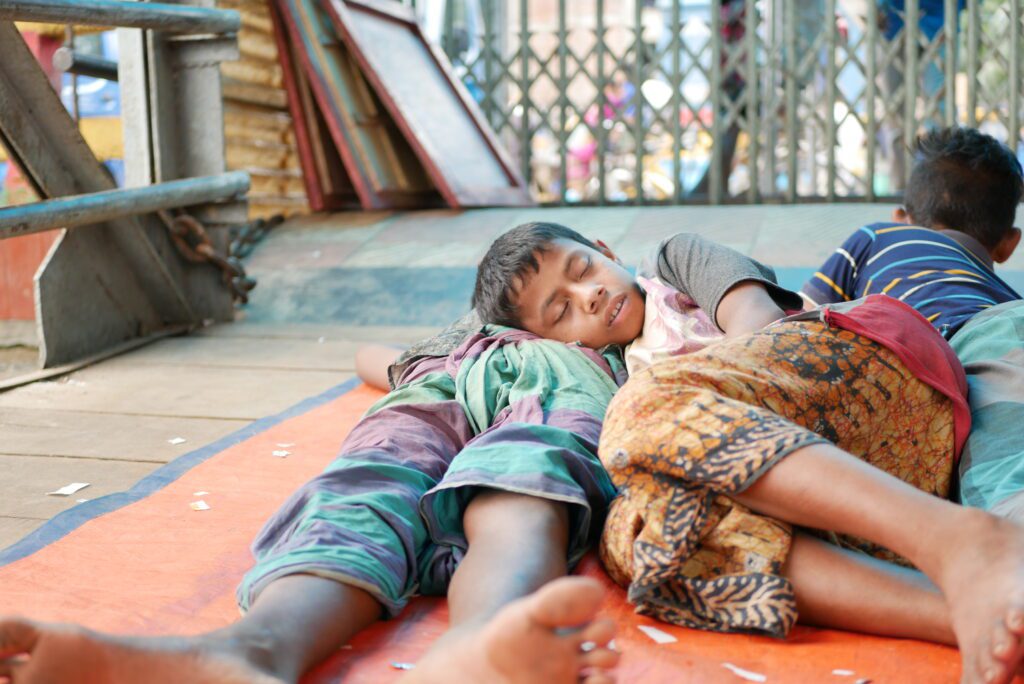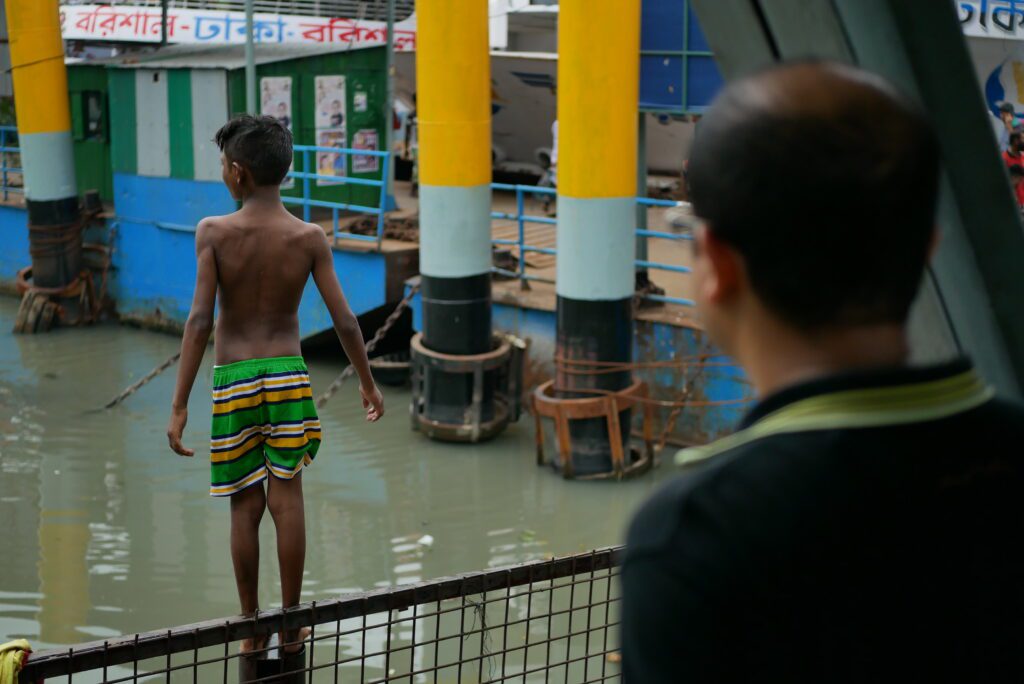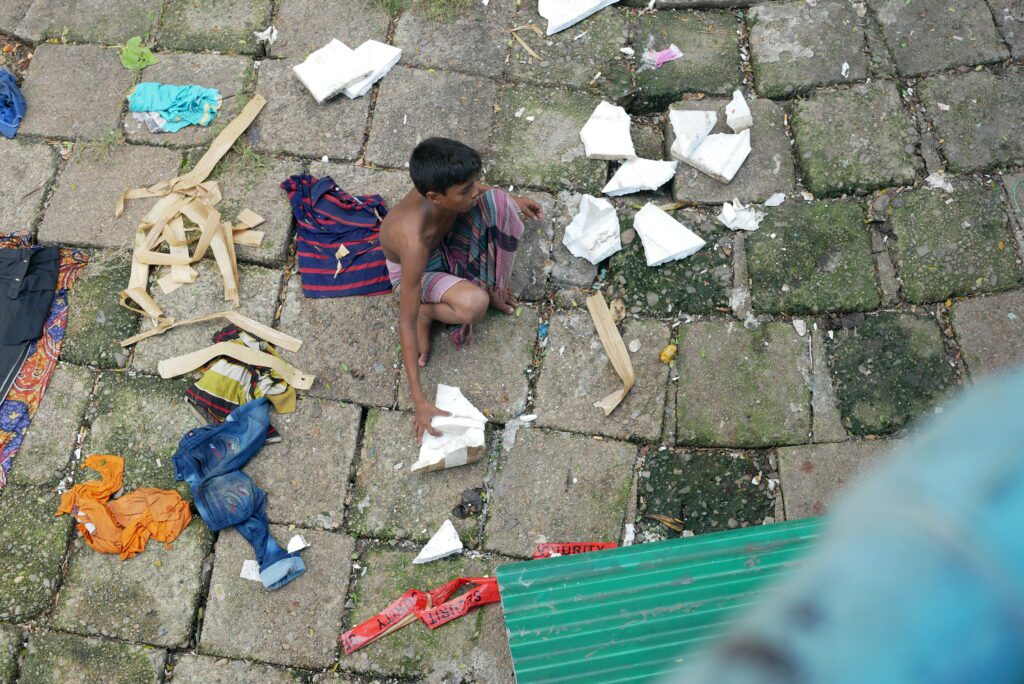How can you “Stay home” when the street is your “home”?
How can you “Wash your hands” when you don’t even have access to enough drinking water, let alone water for basic hygiene?
How can you “Keep distance” when you live in the desperately overcrowded city of Dhaka and the only place to sleep is crammed together on a piece of cardboard with other kids?
How can you feel “Community support” when you are excluded from society and face discrimination and cruelty from communities and authorities who fear the virus?
How can you “Stock up on vitamins” in order to support your immune system, when you struggle to find something to eat at all?

Most doors are closed for Street Children during the pandemic
In Dhaka we have very clearly witnessed an increase in the number of street children as the pandemic has unfolded. It’s very obvious to notice in all neighborhoods of the capital. The situation for the most vulnerable people is just getting bleaker, more hopeless and inhumane. Our team from LEEDO works tirelessly to support the children where they can
As the global Covid-19 pandemic continues to evolve with each new day, a humanitarian crisis is unfolding for the world’s most vulnerable and marginalized people. During these weeks and months of uncertainty we all limit contact, stay and work from home in order to stay safe. But this, very clearly, is not possible for everyone. Living as a street child is already a situation of misery, but greater woes come with the added hardships of this pandemic. Street children around the world are particularly hit hard by this pandemic.

Our Street Workers are reaching out to the Children
“Economic” struggle for the street children
On a regular day, street children can get by with begging or working a variety of mostly hard and dangerous jobs. Unfortunately for these children, their economic activities have been forced to a halt as a result of the lockdown and social distancing policies. Due to the pandemic, a lot of people in Bangladesh have lost their jobs. Jobless parents are facing increasing difficulties in putting enough food on the table for themselves and their kids and are worrying about a future where they might not be able to support their families. In this unstable setup, we have seen that many children try to support their parents and try to find work on the street… with some of them ending up living on the streets permanently. Furthermore, prolonged school closures (schools are still closed in Bangladesh) and closures of residential services like shelters have forced even more children to the street – at greater risk of harm.
The already precarious livelihood of street kids has all but disappeared. The consequences are extremely severe, detrimental and even lethal. The abrupt loss of income has put thousands of kids at risk of hunger and starvation.

Street Child collecting waste to survive

Street Child collecting waste to survive
Hygiene and health struggle for the street children
Street children are also at high risk of getting infected by the Coronavirus. Street children are forced to live a very unhygienic lifestyle and most of them often suffer from colds, fevers and dangerous diseases. With a very weak immune system, the virus can easily affect them. In a densely populated country like Bangladesh, they are in a vulnerable situation themselves, but also a risk for society as they can carry this virus and spread it easily to other people. Some of them use facemasks they find by the road, while many of them are without masks. They are not able to follow coughing/hygiene etiquette, practice proper hygiene and most of them are not even aware of the severity of this pandemic. If they get sick there is literally no one who will treat them.
During normal times the children can wash themselves and maintain a very basic level of hygiene at mosques, hotels, restaurants and some private houses. During the lockdown all these facilities are closed. The only thing that remains are the public toilets; those are extremely filthy and unsanitary, and in most cases you have to pay to use them and money is not a thing the kids have to spare. All this leaves the kids with pretty much no access to practice personal hygiene.
